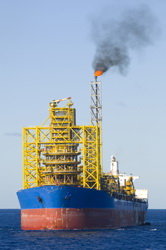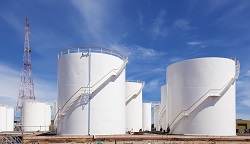Robots aboard!
A floating production storage and offloading (FPSO) vessel is used by the offshore oil industry to process hydrocarbons and store oil. Its proper functioning and maintenance is therefore crucial to ensure a steady supply of oil for many regions of Europe. The EU-funded project 'Non-intrusive in-service inspection robotic system for condition monitoring of welds inside floating production storage and offloading (FPSO) vessels' (FPSO-Inspect) aimed to support maintenance of these vessels. It designed an amphibious robot with non-destructive testing (NDT) to detect fatigue cracks in the stiffeners between tank and shell, corrosion in the shell plates and safety critical welds. Traditional inspection required dry docking and cleaning of the tanks which was very costly. Although end users demanded robots that could work in an oil-filled tank, the project team aimed as a first step to build a robot that could at least swim in a water-filled tank. The new robot would be able to operate when the vessel is at sea, decreasing costs and downtime significantly. Armed with these requirements, FPSO-Inspect worked on the robot vehicle and on the sensors to be mounted on it, as well as a positioning and guidance system for the robot. It developed and tested sensor systems that can effectively detect fatigue cracks and corrosion, along with a man-machine interface that reads the data from the sensors. Different types of rigorous testing advanced the project's aims considerably and helped overcome many obstacles along the way. The findings are set to help industry produce these robots which would be in high demand by the offshore oil sector. This would also pave the way for realising the concept for a robot version that would operate in an oil-filled environment. The savings resulting from these robots could be significant, and Europe could well become a pioneer in this type of product.







